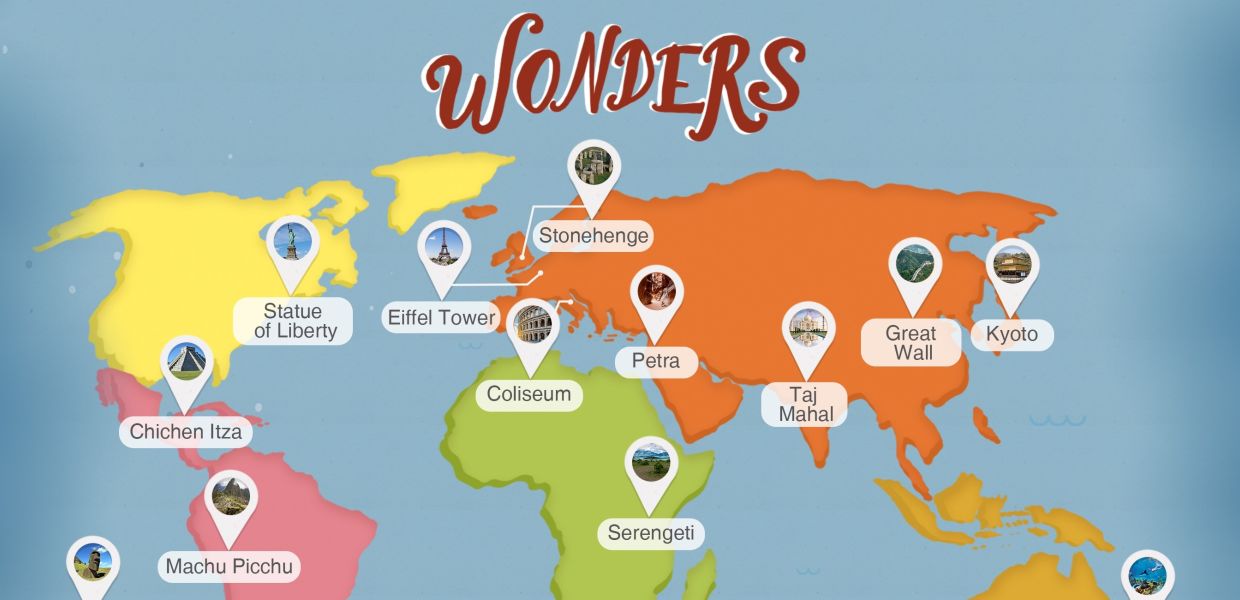Funding winners transform cultural Wonders into educational app
Creating fun and creative reuse ideas for digital cultural heritage is something we are passionate about at Europeana. We speak to Europeana Challenge winner Federica Pascotto about the launch of her educational app Wonders and the chaos and constraints of developing an application game.

- Title:
- Wonders
- Creator:
- Art Stories
Engaging children in history in a fun way isn’t always easy - but it's this very challenge that Art Stories creator Federica Pascotto thrives on to bring art, history and architecture to young audiences. The educational app developers won the Europeana Challenge 2016 with the project FACES, in which children became art explorers.They’ve now also won the Europeana #edTech Challenge 2018 for their app Wonders in which children get to explore and learn about different cultural sites by completing various challenges.
How did the 2018 Europeana Challenge win contribute to the app’s development?
It provided us with a challenging exercise. We build educational products and never have to deal with constraints, we do what we like, in an anarchical way, which is lovely. With a Europeana Challenge, we have a set of tasks and boundaries challenging us to find a new solution to a problem. On top of this, Europeana provides funding that pays for the work we do. We’ve been cooking up ideas on an app for Wonders for a while, we already had ideas about it that we would constantly go back to but we were never able to stick to it. When the challenge came up, it was perfect for this app.

Preview of Machu Picchu challenge.
What was the process behind creating Wonders?
-
Well, firstly we knew that we wanted to do something fun about travelling to those major mythical iconographic sites such as Machu Picchu and Kyoto, so first we did some research on Europeana Collections to find images for each of the sites that we had chosen.
-
We then decided on the sites by integrating our wishes and what we found on Europeana. We added all the sites on the map and noticed that some places were empty. We wanted the globe to have bits and pieces everywhere. It was just difficult to be representative, which is why we included some natural beauties as well. The list is still incomplete, and we would love to (and will!) add to it.
-
Finally, we decided to integrate a gaming process where you are really challenged to do all the things that a video game requires such as catching things quickly, avoiding obstacles and picking the right elements -fast.

Preview of The Great Barrier Reef challenge.
What were the most challenging aspects of creating the app?
The challenge was to figure out where to put the educational content, considering that when a child plays with a digital tool they expect to be challenged -they need to be fast, quick and reactive to the game, while learning is a slow process - you need to read and think. If you put the educational content in the beginning, no-one will play, if it’s at the end, no-one will view it. In Wonders we feel gameplay and contents are nicely bound together and, since it is difficult to win the games, when a child finally gets the reward, they want to see what they won. This is the challenge we usually have with all our apps.
What makes Wonders unique?
The gaming part makes Wonders unique: this is the first time we try to do something that relates to video games rather than illustrated books.
How can digital educational apps like Wonders support children’s learning?
If you have fun and you play it doesn’t feel like learning. We saw it a lot in our experience: children remember the buildings they played with in the apps, they remember the information. It’s captured information and when they start understanding, then they will be curious: when travelling, they will be able to notice things and make connections which allow them to be more aware in the world.

Preview of Kyoto challenge.
Do you have future plans for the game’s development?
We are building an extension to the app, we haven’t yet decided on the content. It could be Europe because of the European Year of Cultural Heritage. There are a few solutions which we are assessing the pros and cons for. The ambition would be to have extensions for each continent, however, we need to decide which is the most convenient place to start.
We were also planning to have a version of the app on Bartolomeo which is only in Italian. We are discussing doing something more European for schools with a quiz online and a downloadable set.
Download the Wonders app on App store or Google play. Find more information for creative reuse and app development.


